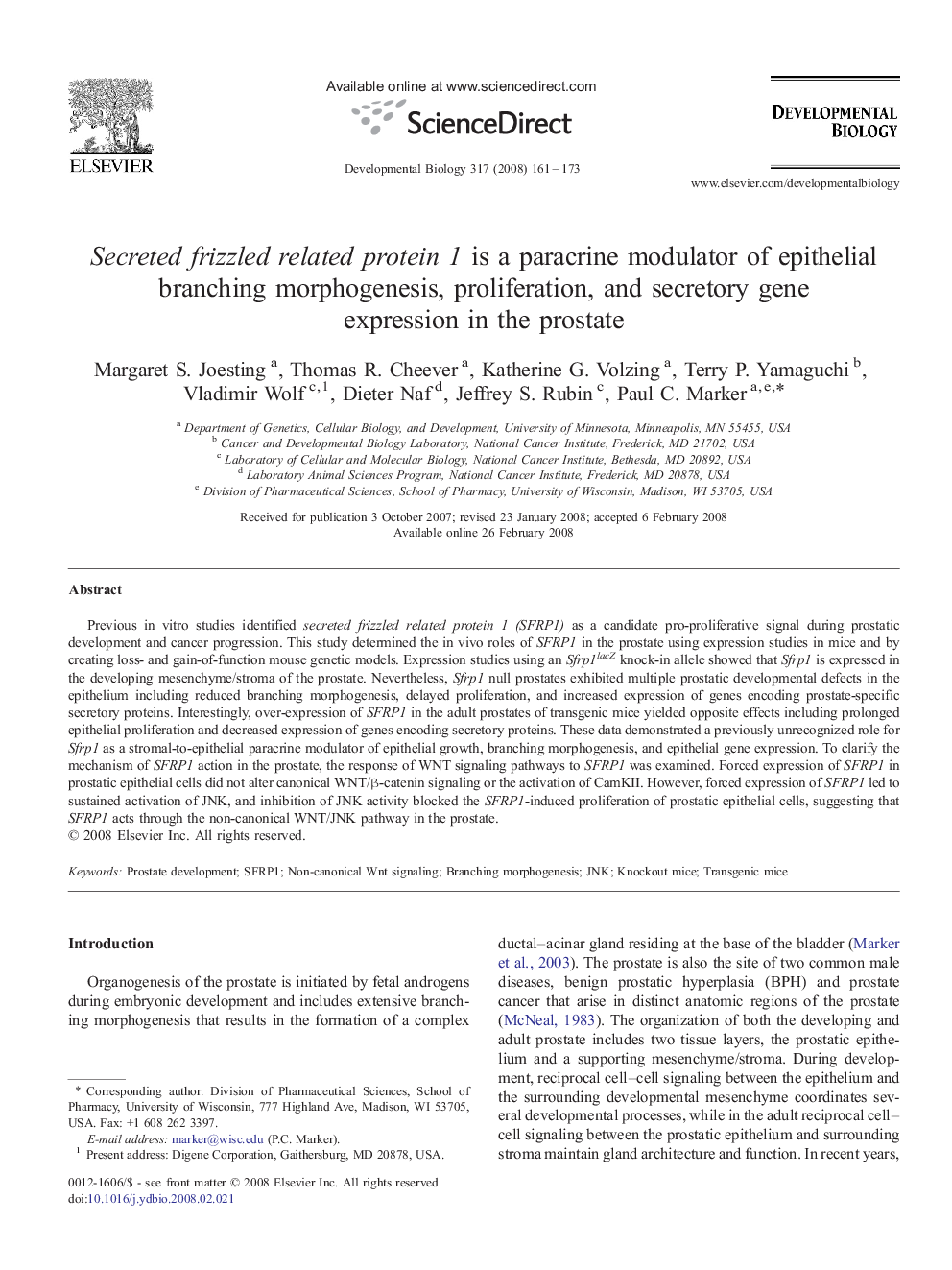| Article ID | Journal | Published Year | Pages | File Type |
|---|---|---|---|---|
| 10933633 | Developmental Biology | 2008 | 13 Pages |
Abstract
Previous in vitro studies identified secreted frizzled related protein 1 (SFRP1) as a candidate pro-proliferative signal during prostatic development and cancer progression. This study determined the in vivo roles of SFRP1 in the prostate using expression studies in mice and by creating loss- and gain-of-function mouse genetic models. Expression studies using an Sfrp1lacZ knock-in allele showed that Sfrp1 is expressed in the developing mesenchyme/stroma of the prostate. Nevertheless, Sfrp1 null prostates exhibited multiple prostatic developmental defects in the epithelium including reduced branching morphogenesis, delayed proliferation, and increased expression of genes encoding prostate-specific secretory proteins. Interestingly, over-expression of SFRP1 in the adult prostates of transgenic mice yielded opposite effects including prolonged epithelial proliferation and decreased expression of genes encoding secretory proteins. These data demonstrated a previously unrecognized role for Sfrp1 as a stromal-to-epithelial paracrine modulator of epithelial growth, branching morphogenesis, and epithelial gene expression. To clarify the mechanism of SFRP1 action in the prostate, the response of WNT signaling pathways to SFRP1 was examined. Forced expression of SFRP1 in prostatic epithelial cells did not alter canonical WNT/β-catenin signaling or the activation of CamKII. However, forced expression of SFRP1 led to sustained activation of JNK, and inhibition of JNK activity blocked the SFRP1-induced proliferation of prostatic epithelial cells, suggesting that SFRP1 acts through the non-canonical WNT/JNK pathway in the prostate.
Keywords
Related Topics
Life Sciences
Biochemistry, Genetics and Molecular Biology
Cell Biology
Authors
Margaret S. Joesting, Thomas R. Cheever, Katherine G. Volzing, Terry P. Yamaguchi, Vladimir Wolf, Dieter Naf, Jeffrey S. Rubin, Paul C. Marker,
